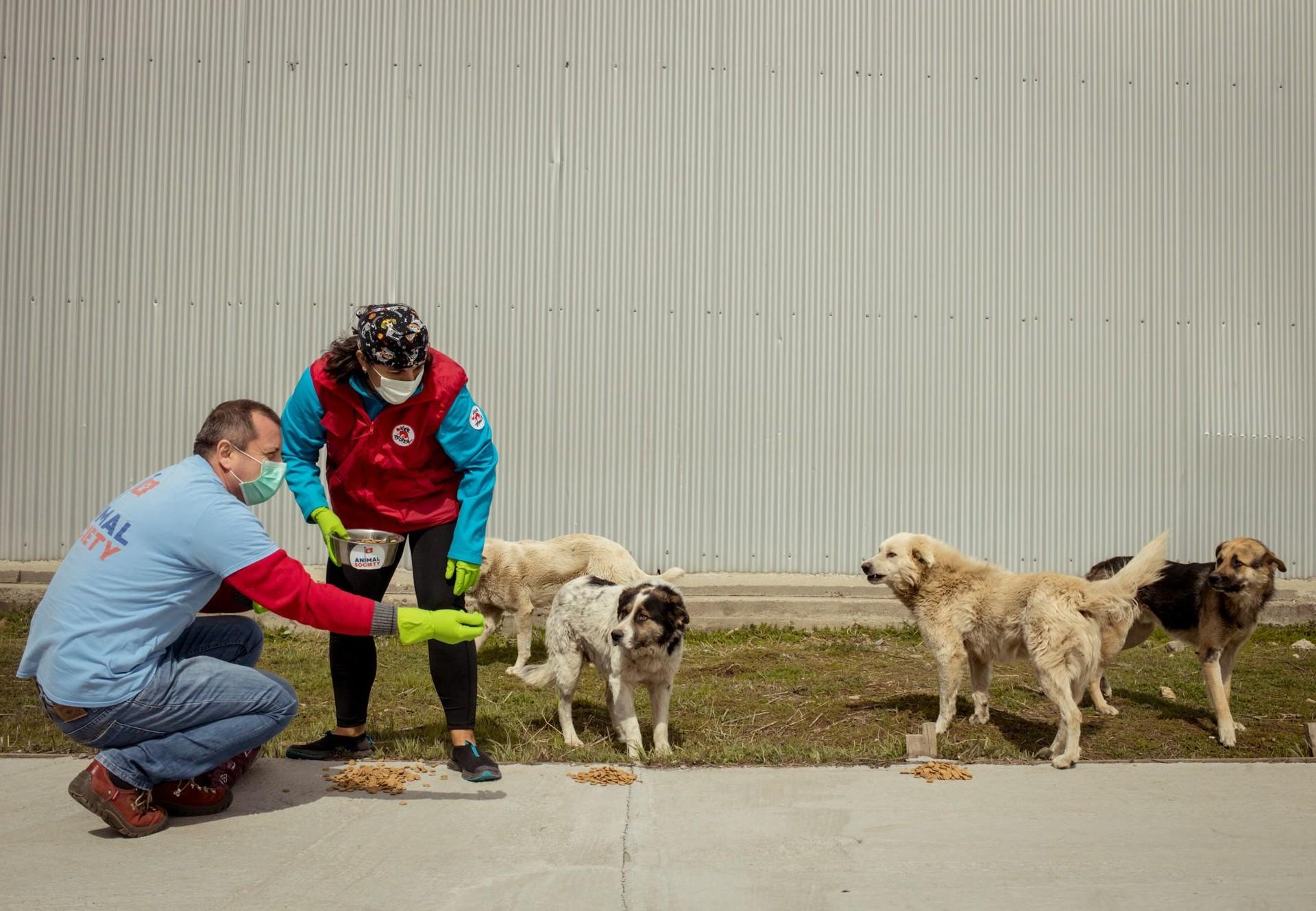
COVID-19 pandemic: Thousands of stray dogs and cats in Europe are in danger of starving
FOUR PAWS starts feeding project for homeless animals
7 April 2020 – The COVID-19 pandemic also has serious consequences for strays across Europe: According to global animal welfare organisation FOUR PAWS, homeless dogs and cats are threatened with starvation. The reasons for the food shortage are the curfews as well as the closed restaurants and factories, the main food source for many stray animals. In order to secure the supply for strays even in times of the coronavirus, FOUR PAWS has now started a pilot project. Together with local partners, the project aims to feed around 1,000 free-roaming dogs in Romania, starting with the cities of Bucharest and Galati. Similar initiatives will follow in Ukraine and Bulgaria.
Since the brutal mass culling in 2014, stray dogs in Bucharest usually only venture out onto the streets at night. Due to the COVID-19 lockdown measures, however, FOUR PAWS has observed in the last two weeks that the animals, especially in industrial areas, are now desperately searching for food during the day again.
Feeding project as basis for population measures
Although the current focus of the FOUR PAWS project during the lockdown period is on feeding, the mobile veterinarians also use the contact with the dogs and cats as an opportunity to examine and treat them if necessary. The team keeps detailed records of the animals that are incorporated into a sterilisation and vaccination plan. At a later date, the FOUR PAWS team plans to return for a CNVR (Catch-Neuter-Vaccinate-Release) project.
Cleaning gloves and self-stitched masks in case of emergency
The hardly available gloves and masks pose a special challenge to the FOUR PAWS team. For safety reasons, however, they must always be worn when in contact with the animals. “Necessity begets ingenuity. If shortages occur, our team uses cleaning gloves and self-made masks. Of course, only in extreme emergencies – so far, we have been lucky and have always been able to find new supplies. But we must be very careful with our resources, as the project is scheduled to run for several more weeks,” says Rowlings.

